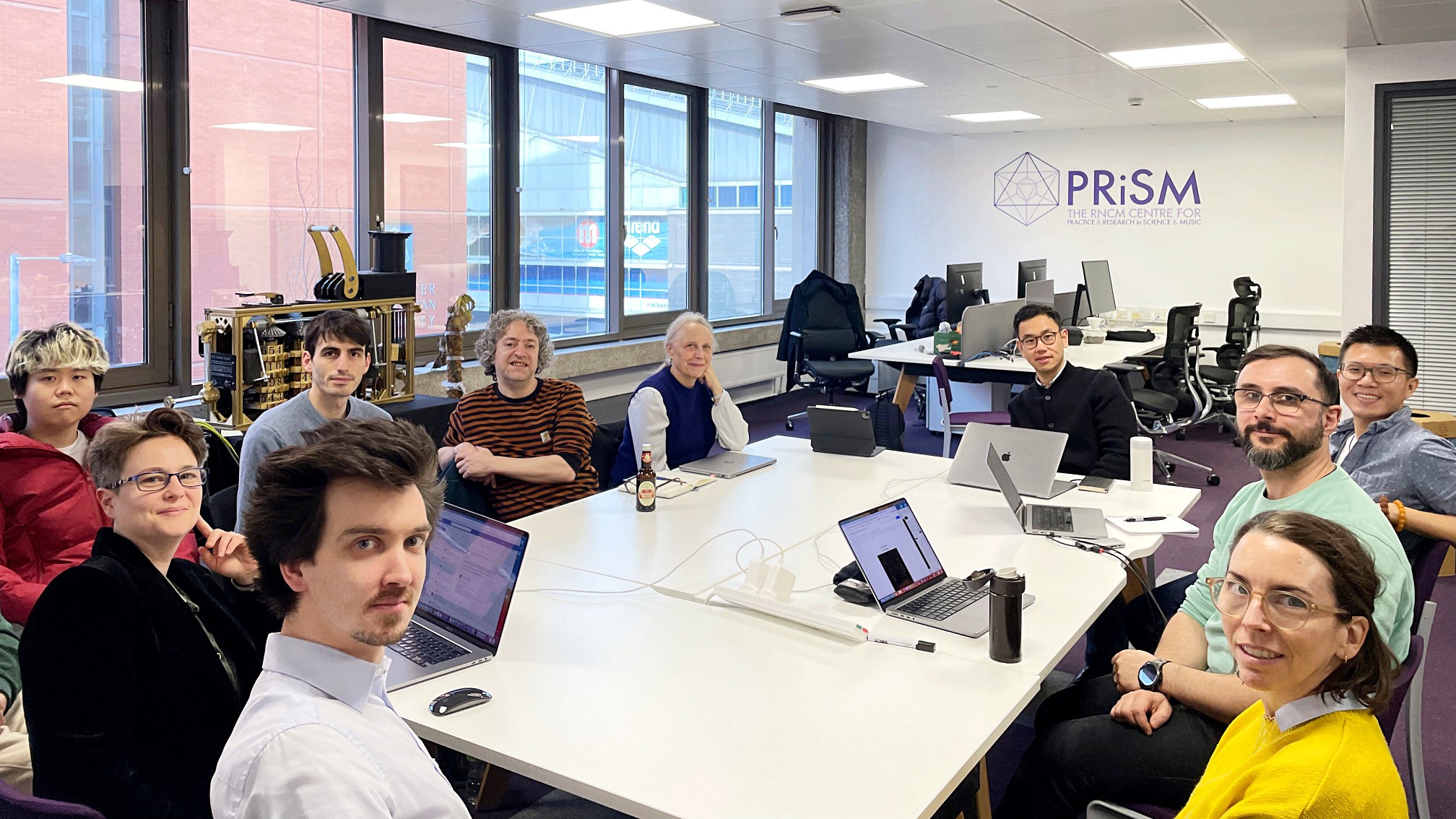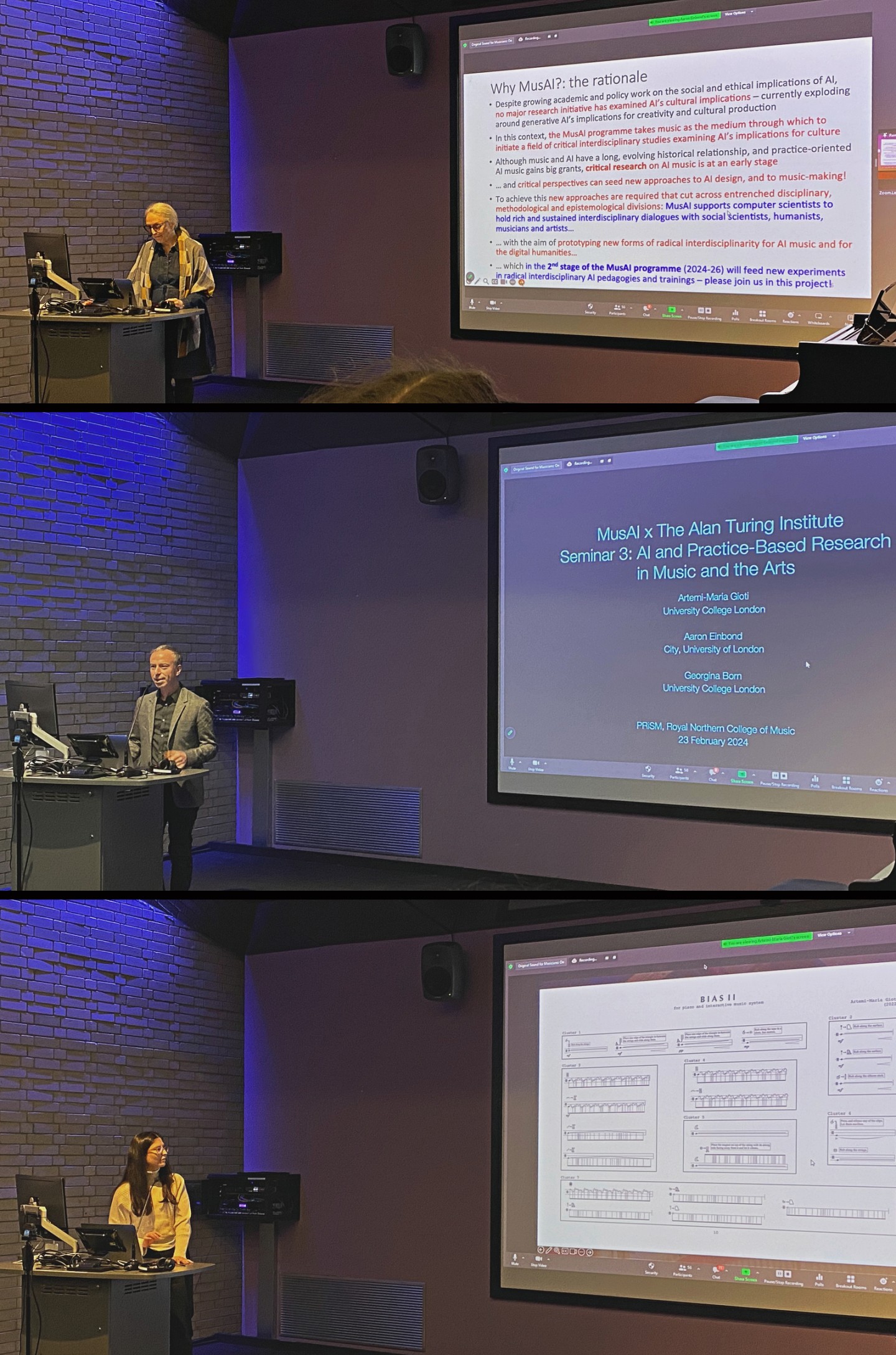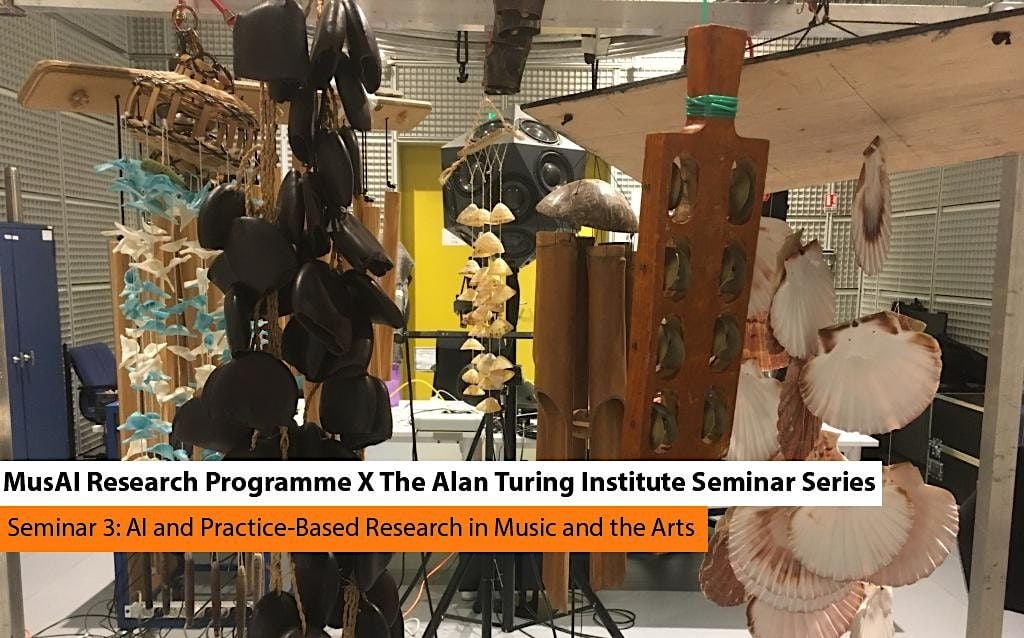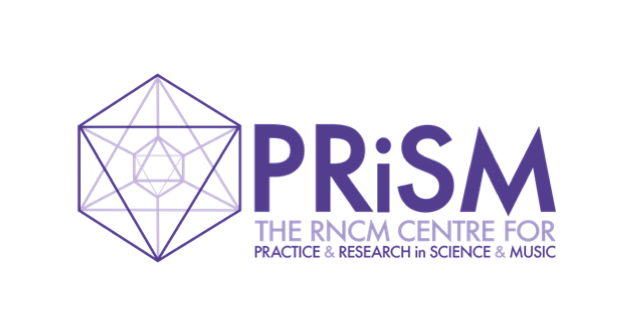PRiSM and “MusAI: Building Critical Interdisciplinary Studies”
RNCM PRiSM welcomed Professor Georgina Born and her team to give two seminars on their ongoing ‘MusAI’ Research Program, one as part of a series of 4 public lectures organised in conjunction with The Alan Turing Institute.
19 March 2024
Funded by the European Research Council (ERC), “Music and AI: Building Critical Interdisciplinary Studies (MusAI)” is a five-year research program investigating the cultural implications of AI through critical studies examining its relationship with music.
Led by Professor Georgina Born at the Institute of Advanced Studies and Department of Anthropology, University College London, the program comprises a large international team from the Max Planck Institute for Empirical Aesthetics, KTH Royal Institute of Technology, the University of New South Wales, Carnegie Mellon University, the University of Birmingham, City University of London, and King’s College London.
The team members come from digital anthropology and sociology, musicology, science and technology studies, digital media and critical data studies, music composition and music research, computer science, computational creativity and music information retrieval.

Professor Georgina Born & Dr Owen Green (Max Planck Institute for Empirical Aesthetics & University College London) meeting with the PRiSM team and RNCM Doctoral Researchers, before their presentation at the RNCM Research Forum, 7 February 2024.
“It was a highlight of our recent UK ‘tour’ introducing the work of the MusAI research program to visit PRiSM twice and present two facets of our research, each time finding a good audience and intelligent questioning, as well as getting to know the students and research teams. There are clear resonances between MusAI’s approach to engagements between the computer sciences and the arts and humanities and the similar approach taken by PRiSM, and we look forward to further dialogue as we enter the final years of the program.”
— Professor Georgina Born, Principal Investigator, MusAI Research Program
“PRiSM was delighted to host two MusAI events at the RNCM in February. Our own work resonates strongly with MusAI’s vision, scrutinising the impact of machine intelligence through critical interdisciplinary methods and practices. We were thrilled that Georgina and Owen spent time with us and our students; we believe that our ongoing conversation will help shape a more responsible, humanities-led AI future.”
— Professor Emily Howard, Director PRiSM
“Georgina and her team across the MusAI Program offer a really interesting approach to thinking about interdisciplinarity, articulating modes of interdisciplinary research and also demonstrating a critical apparatus with a musical lens. The work has been powerful in prompting and informing PRiSM’s own reflections, as we continue to develop new conversations across the creative arts and the sciences.”
— Professor David De Roure, PRiSM Technical Director
RNCM Research Forum – Georgina Born & Owen Green | 7 February
On 7 February, Professor Georgina Born and Dr Owen Green (Max Planck Institute for Empirical Aesthetics and University College London) introduced their initial work on a particular project, ‘Sonic Social Genre’, that investigates whether and how rich theories of genre from the humanities can be quantitatively modelled.
Their aim is to develop new methodological approaches for music informatics research that enable mutual translation between the humanities and computer science, while advancing longstanding problems – here, understanding musical genres – so as to evaluate the successes and failures of machine listening, as well as to advance a more ambitious and nuanced notion of how a ‘listener’ could be modelled.
Genre presents a salutary focus for such interdisciplinary research as it brings to the foreground distinct approaches in the humanities and engineering to the vital topics of musical difference and musical evolution, and offers fundamental challenges in dealing with diverse sources of information, temporal variability, uncertainty and complexity.
Turing Network Seminar | AI & Arts and MusAI: AI and Practice-Based Research in Music and the Arts | 23 February

MusAI Turing Network Seminar at PRiSM. From top to bottom – Georgina Born, Aaron Einbond, Artemi-Maria Gioti.
As part of the ‘MusAI Series’ of 4 public seminars held in collaboration with the ‘AI and the Arts’ Interest Group at The Alan Turing Institute, this public lecture addressed rapid growth of practice-based research in music and the arts focused on creative applications of AI and machine learning algorithms.
Composers Dr Artemi-Maria Gioti (University College London) and Dr Aaron Einbond (City University London) presented two MusAI projects that, in different ways, seek to innovate by developing critical kinds of engagement between the arts and technology.
They counter the tendency of some art- and music-engineering collaborations to neuter critique of technoscience by instead engaging with critical themes from relevant humanities scholarship to inform artistic research using machine learning.
Gioti’s and Einbond’s work explores how composing with machine learning is contingent on the artists’ aesthetic backgrounds, engagement with human and non-human collaborators, and the processes of data-making themselves, probing issues often deemed external to the concerns of computer music: those of material engagement, musical labour, and distributed creativity.



